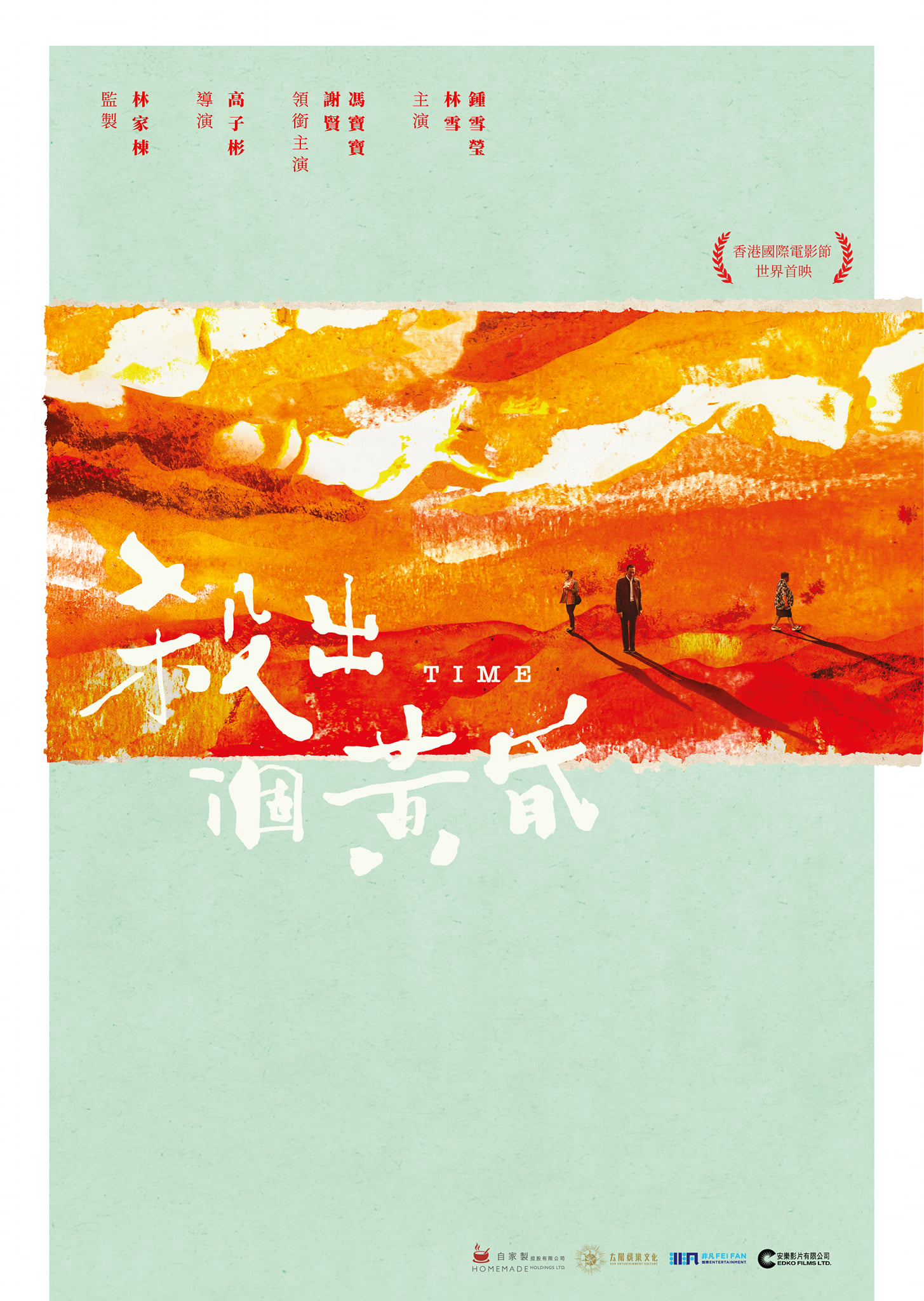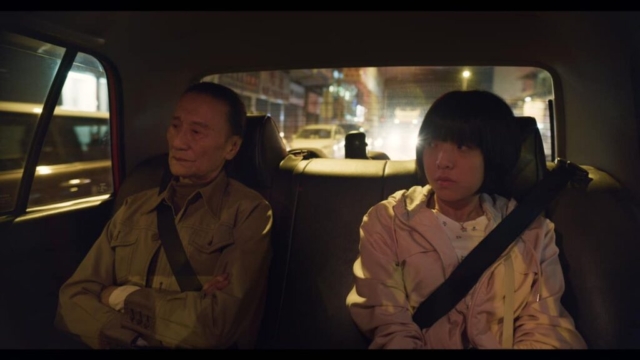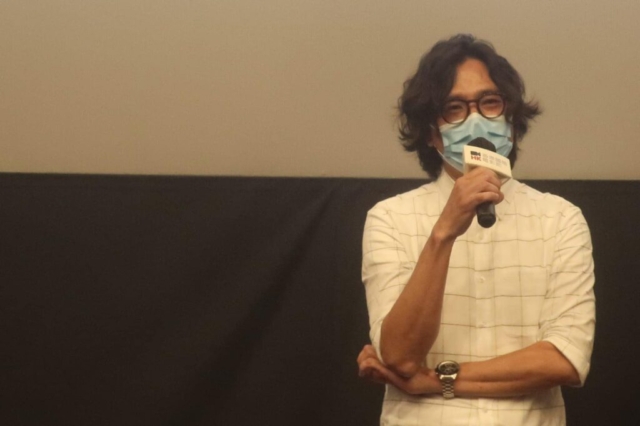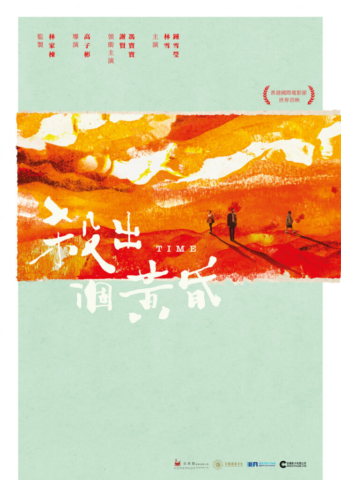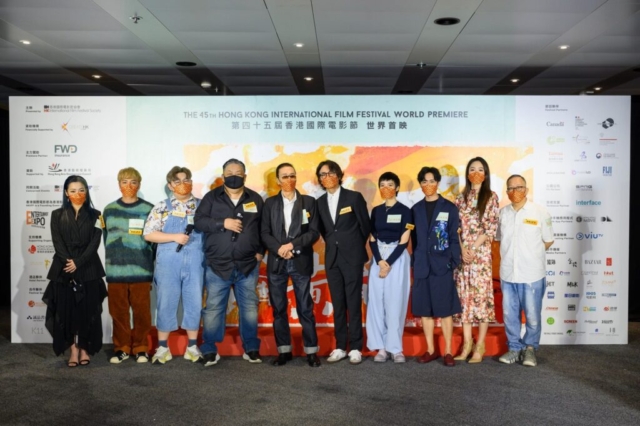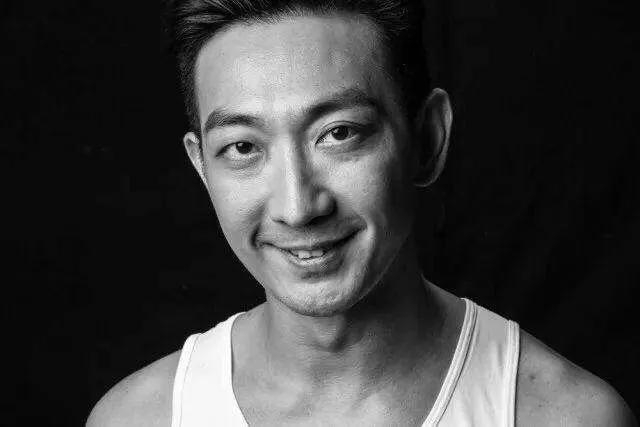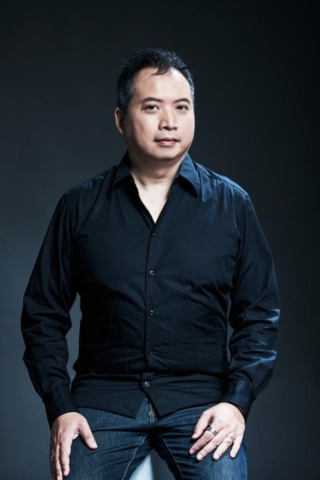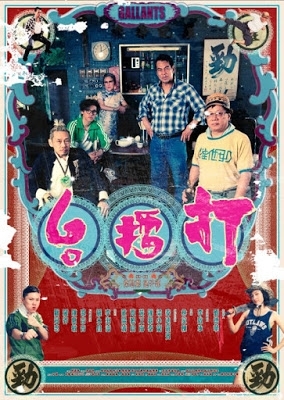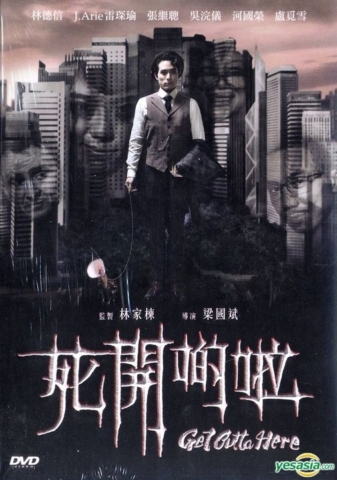12-04-21
‘You don’t stop laughing when you grow old, you grow old when you stop laughing.’ I grew old when I stopped tearing up. Last week, I incongruously laughed and cried at the same time—not that I got a mental problem but because I have watched one of the most affecting movies of Hong Kong Time(殺出個黃昏).
When we sat down to dinner, we often talked about youth problem—the problem that we actually did not know much about. It is hard getting people to talk about elderly problems—perhaps, death could be a simple solution for all these problems and nobody cares. Or, older people seldom declare war against society.
This good film is about 3 old scoundrels: during the daytime, they all had an identity to hide behind. One was a helpless grandma (Petrina Fung馮寶寶) who had to sing in scruffy nightclubs for an indecent living. One was a once-handsome lonely singleton (Patrick Tse謝賢) whose reluctance was to dump his killing knife, his only companion for the sad years. One was a fat and ugly driver (Lam Suet林雪) who dreamt of marrying a young and pretty prostitute who unfortunately just treated him no more than a customer. Old age turned them into kind people and kindness made them warm-hearted ruffians, with enough conscience to keep them away from killing the wrong people; and even to save good people who are on the verge of dying, physically or spiritually, if not both. When God laughs at the sinful souls and the souls laugh back to God, the ‘trinity’ of these 3 forgotten old folks were always there to suffer. However, in the world of movies, losers are often more celebrated than the winner.
The 3 oldies stick around for orders to kill, but business was poor since they often failed to kill. They were also enslaved by their respective liabilities. The singleton was chased by a teenager girl who looked upon him as a super hero. The nightclub singer was pressurized by her son to give all her assets away to him. The driver’s prostitute dream girl told him one day that she found a better man in Macau and would like to say goodbye. Destiny is brutal: when these 3 were hungry for more from life, life gave them less. After a series of ludicrous but funny incidents, 3 of them finally changed: stop expecting too much from others. Simply treat life as happiness, double and double it till death do them part.
In Hong Kong, very few films include the theme of aging or seniors, perhaps old people are not cinema customers. Older people in local films are too often cliches, old-timers mumbling and shaking their walking sticks. I still remember vividly the touching western films about old age such as The Father (爸爸可否不要老), Driving Miss Daisy (山水喜相逢), On Golden Pond (金池塘)and The Best Exotic Marigold Hotel (黃金花大酒店). It now takes a great deal of bravery for the film producer Gordon Lam (林家棟) and director Ricky Ko (高子彬 ) to stand up and pay homage to the elderly who contributed tremendously to our city in the past. Lam dares to confront the market risk. His determination to banish negative investors with illumination and his willingness to wrestle with the 2 senior actors Patrick Tse and Petrina Fung, who are artistically demanding, caused angels to sing. I love the film as much as I respect Gordon Lam personally as he is my personal good friend who has always lived up to his high ideals.
The 2 shiny stars Patrick Tse and Petrina Fung have been in the film industry since 1950s. They were good looking, charming and popular in those years. They are never erased from popular history and Hong Kong’s collective memory, coloured by our strong emotion towards them, especially when Patrick Tse is the father of another great young star Nicholas Tse (謝霆鋒). Tse and Fung acted very powerfully in the film. Watching them how to act is not just the passing of time. Their acting is the collection of life experiences and their intensity about creative ideas. Most importantly, when they shine, they have a high level of confidence in themselves. They are confident about what they were doing in the film and their conviction is contagious. Audience are happily manipulated by them and become perfectly satisfied when we leave the theatre. Also, they, as gurus, give the film a special class and style.
Apart from acting, the dialogue, cinematography, editing, design, mise en scène and attitude of this film all suggest hard work and sincere thoughts. Despite its means, the end of Time is surely not a commercial film for amusing the audience. It wants to tell us that Hong Kong still has a genre called ‘Hong Kong films’ and Hong Kong stars still glint.
The charming music scores are the wonderful work of a master Tomy Wai (韋啟良). The 2 songs that he chose ‘倦 Weary’ and ‘青春之歌 The Song of Bloom’ successfully connect the related staves of the story. It is in the contrast of light and dark, happiness and joy, and up and down that great music happens.
“The best recommendation I can have is my own creativity and my humble effort, and what others cannot do for me. I fail more than succeed. Please be assured that however, I will not give up,” said the producer of the film Gordon Lam. Isn’t this ‘Hong Kong spirit’ in need in our city?
This article can also be found at the following sites:




